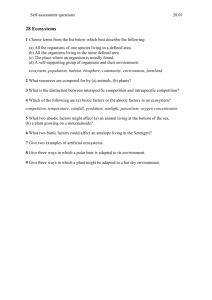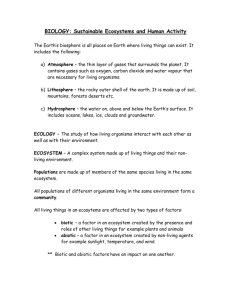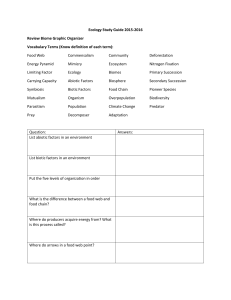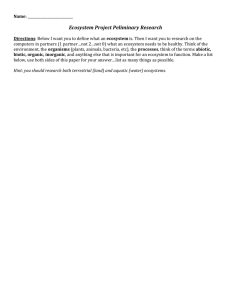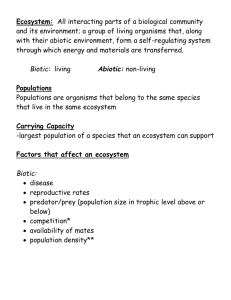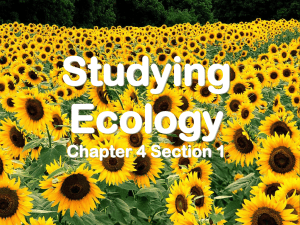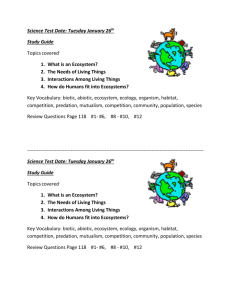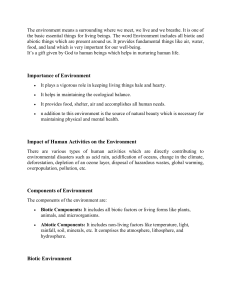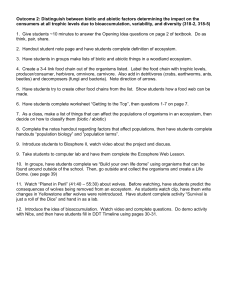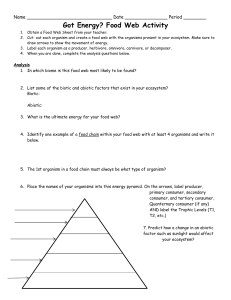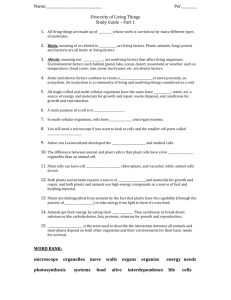Ecology Quiz Review: Biotic Factors, Symbiosis, Food Webs
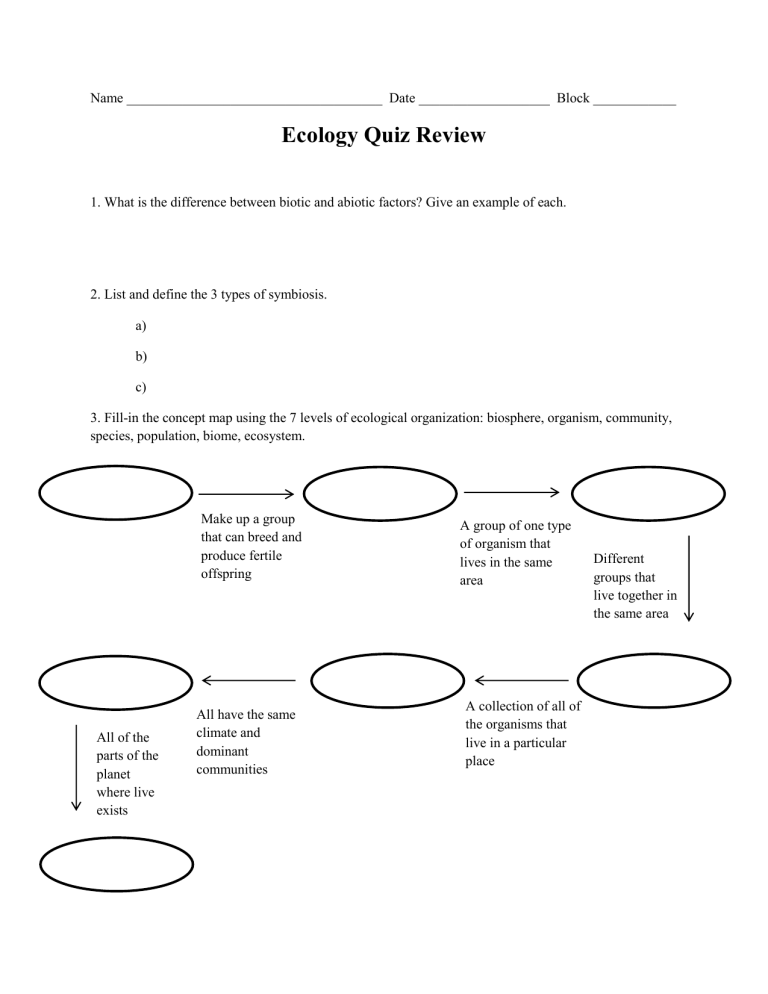
Name _____________________________________ Date ___________________ Block ____________
Ecology Quiz Review
1. What is the difference between biotic and abiotic factors? Give an example of each.
2. List and define the 3 types of symbiosis. a) b) c)
3. Fill-in the concept map using the 7 levels of ecological organization: biosphere, organism, community, species, population, biome, ecosystem.
All of the parts of the planet where live exists
Make up a group that can breed and produce fertile offspring
All have the same climate and dominant communities
A group of one type of organism that lives in the same area
A collection of all of the organisms that live in a particular place
Different groups that live together in the same area
Use the food web to identify the:
4. Producers
5. Primary Consumers
6. Secondary Consumers
7. Tertiary Consumers
8. Herbivores
9. Carnivores
10. Omnivores
11. What elements are missing from this food web?
Biogeochemical Cycles
12. Water moves into the atmosphere through ____________ and _______________ and returns to the
Earth through _______________.
13. How is water stored on Earth during the water cycle?
14. How does carbon enter the biotic part of the ecosystem, namely plants from the atmosphere?
15. What is combustion, and how does it affect the carbon cycle?
16. How is nitrogen from the atmosphere, the abiotic part of the ecosystem, converted into the biotic part of the ecosystem in organisms?
17. How is the phosphorus cycle different from the nitrogen or carbon cycles?
